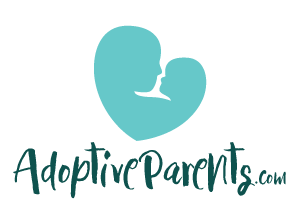When you have a child with special needs, you grow accustomed to nosy questions.
Whether it’s because of an obvious physical need or a not-so-obvious emotional need that manifests itself in challenging behaviors, kids with special needs often draw unwanted looks and questions from strangers, friends, and family members alike.
As parents, it’s our responsibility to protect them and deflect the intrusions, to help other people see beyond the differences and instead see the unique and wonderful child who just happens to have a special need. The way we answer nosy questions can often shape how others will see our children for years to come. But that doesn’t mean it’s easy to deal with the questions.
Here are six tips on how to answer those nosy questions about your child.
- Take a deep breath before you answer. Whether it’s a question you’re prepared to address or not, or whether the question comes from a stranger or a close family member, stop before you answer and take a deep breath. Pause for just a couple of seconds to focus and remind yourself that most people, even those who ask the most intrusive questions, likely don’t mean anything insulting or harmful. They’re just curious people who ask really bad questions.
- Remember that how you answer a question can be just as important as what you say. The way that you answer a nosy question may have an impact on how the person who asked you views your child or even all children with special needs. No pressure, right?! Seriously, be conscious of your tone of voice and your attitude when you address a nosy question. Sometimes that makes more of an impression than the words in your actual answer.
- Acknowledge to yourself that there is a difference between what you want to say and what you should say. When a person asks a nosy question, the first response that immediately comes to the mind of parents with special needs kids is often a sarcastic reply or a snarky comment that would make the asker feel as uncomfortable as the question has made the parent feel. It’s okay to have those feelings. People are asking potentially invasive questions about your precious child. But reacting and answering out of your frustration won’t help anything, so acknowledge the feelings and then go back to tip #1.
- Know that you don’t have to share anything about your child that you don’t want to share. Just because your child has something that’s obviously different about him or her doesn’t mean that you are required to share details about that difference or the reasons for it. Your child, just like everyone else, is entitled to his or her privacy.
- Have two standard replies ready to cut the asker off from asking more questions. It’s always best to have two standard replies memorized and ready to use when you get a nosy question. If you’re in the mood to educate, try memorizing something like, “We don’t usually answer questions that are too personal, but let me try to answer your question as best I can.” If you’re not in the mood to deal with the question – or the person who asked it – say something like, “Thank you for asking, but we don’t share personal things about our child.”
- Never apologize for not answering a nosy question. It’s common to start off a response to a nosy question by saying “I’m sorry.” “I’m sorry, but I’m not going to answer that,” or “I’m sorry, that’s not something I can share with you.” It seems like such a simple thing, but it’s so important to stop doing it. You don’t owe the asker anything, and you certainly don’t need to apologize for not revealing anything you don’t want revealed about your child. Even when you’re adding “I’m sorry” in a polite way, you’re still apologizing unnecessarily for essentially protecting your child.
However you choose to respond, remember to put your child and your child’s needs first. Everything else is secondary. There is a delicate balance between being a protective parent and one that educates others so that the epidemic of nosy questions might one day be cured – or at least vaccinated so that most people don’t ever catch it. Let’s make sure we’re on the healing end of the epidemic and not just enabling it to spread!





